Navigating life as a wheelchair user in a world designed for non-disabled individuals presents daily challenges and systemic barriers. Mitch Bohn, a 28-year-old man living with Spina Bifida, shares his experiences and insights into ableism, shedding light on the often-overlooked struggles of disabled people.
His story is not just about resilience, but also about the pervasive ableism embedded in our society. This article highlights Mitch’s journey and the broader implications of ableism, drawing attention to necessary changes and fostering empathy.
“Living with spina bifida is no cakewalk,” Mitch begins, explaining that the most challenging aspects of his condition are often the secondary health issues that arise.
Mitch lives in Billings, Montana, a place he loves despite the accessibility challenges.
“I wear a few hats in my day-to-day life,” he shares. “I have two sports podcasts—Wide Left Sports and Chin Music with Mitch and Tony. And, I also guest co-host on a local radio show and write for a newspaper in Washington!”
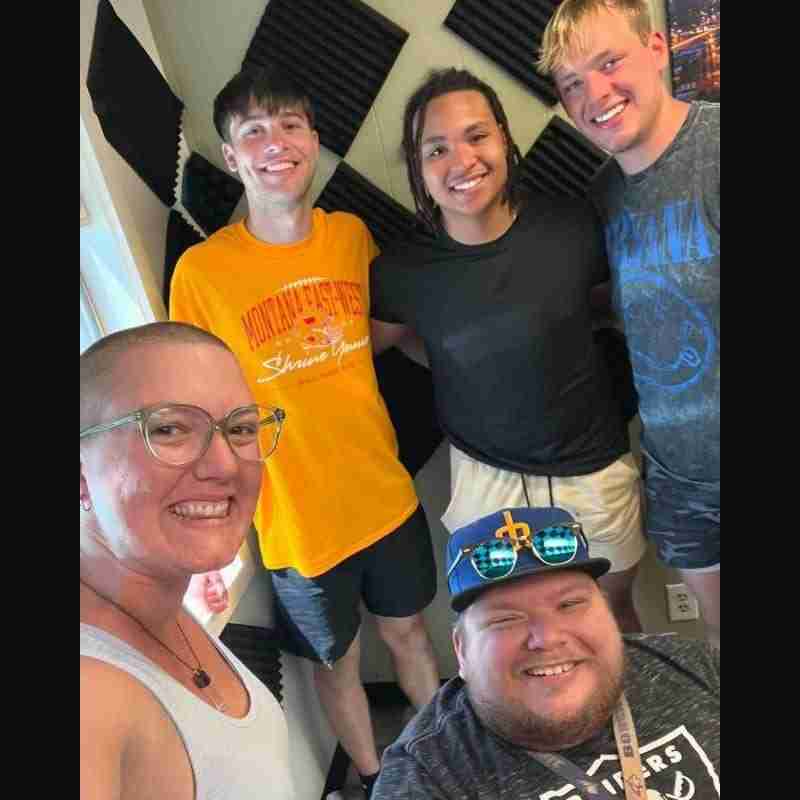
What is Ableism?
Ableism, Mitch explains, is the systemic exclusion and discrimination against disabled people. “Ableism to me is things not being accessible for everyone,” he says.
Institutional ableism contributes to this systemic exclusion by creating barriers and discrimination within organizations and society, affecting accessibility, employment, and the overall lives of individuals with disabilities.
We got to chatting about how it makes much more sense for nondisabled people to adapt to the modifications made for people with disabilities because we physically can. They can not adapt to things designed for non-disabled people.
One personal example stands out in his memory: “At our local hospital, I had to wait over an hour for my appointment because there was only one room with an exam table low enough.”
Living in a World Not Built for You
Mitch’s day-to-day life involves meticulous planning and constant adaptations. For instance, before heading out to a restaurant with friends, he must research the establishment’s accessibility.
“I have to see if I’m able to sit at a table with them and be comfortable,” Mitch explains.
Even in places like hospitals, supposed beacons of care and accessibility, Mitch faces hurdles.
“They don’t have all the necessary equipment in the ER. I have to bring my own slide board to get into the bed.”
This reality starkly contrasts with the experience of non-disabled people, who often take for granted the ease of accessing public spaces. Mitch’s anecdote about the *Americans with Disabilities Act (*ADA) compliance at a hospital reveals a shocking disregard for basic accessibility standards.
I asked him, “As a former lifeguard, ADA compliance was a big thing. How does the hospital not meet it?”
His bewilderment echoes the broader frustration of disabled individuals facing systemic ableism.
Mitch’s Struggle with Physical Disabilities, Accessibility, and Grief
Mitch’s physical challenges are compounded by social isolation. He spends most of his time at home because friends’ houses and public spaces are inaccessible.
“Very few houses are accessible for me,” he says.
This isolation was especially pronounced during his school years, when inadequate facilities made basic activities, like using the bathroom, undignified and difficult.

During the interview, I aimed to be mindful of my bias and avoid invasive questions. Yet, despite my good intentions, I realized that my focus on the hardships Mitch faces might inadvertently overlook the positives.
Mitch’s perspective was humbling. Despite the challenges he faces, he remains incredibly grateful for the love and support of his family and the fact that he is here and alive.
Mitch was born with Spina Bifida, a condition that has required numerous surgeries since birth.
His first surgery took place when he was just six hours old, a critical procedure to address the open spine he was born with.
Over the years, Mitch has undergone more than 30 surgeries, each one a testament to his resilience and the medical team’s dedication.
These surgeries have been essential in managing his condition, yet each has brought its own set of challenges and recovery periods.
One of the most significant emotional impacts he experienced was the loss of his grandmother, who was his best friend and main source of support.
“Growing up not having very many friends, my grandma was my best friend. When she passed away five or six years ago, it was probably the hardest thing for me,” Mitch recalls.
Her passing left a void in his heart, amplifying his sense of isolation. Social isolation and emotional loss can significantly impact the mental health conditions of disabled individuals, making it crucial to recognize and address these challenges.
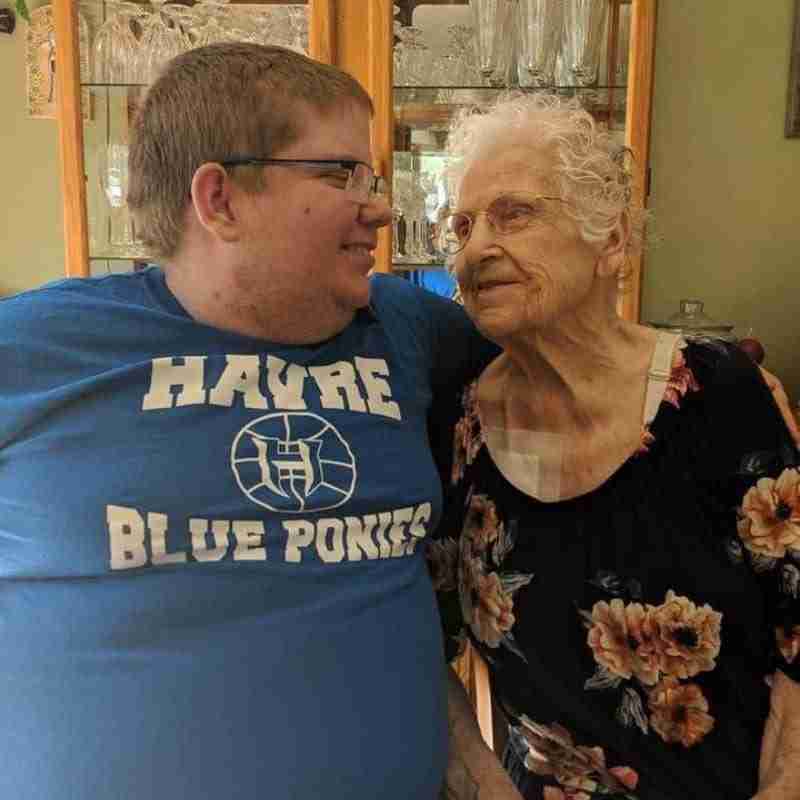
Finding Community: Mitch’s Radio Station Experience and Advocacy
Mitch found solace and community through his work at a local radio station.
“I started an internship at the radio station, and now I’m a fill-in co-host. I’ve made a lot of friends through that,” he shares.
This role has opened new doors for Mitch, allowing him to connect with others and pursue his passion for media and sports.
However, even this seemingly inclusive space has accessibility issues.
“The table they have is a high-top. Thankfully, they have a microphone that can go down to my level.”
High-top tables and other inaccessible features create challenges for individuals with physical disabilities, highlighting the need for more inclusive design.
Mitch’s experience at the radio station illustrates a broader issue: even well-intentioned spaces often lack accessibility.
Reflecting on our conversation, I was struck by Mitch’s resilience and positive outlook. While I initially thought about the things lacking in his life, Mitch emphasized his gratitude for his family’s support and the opportunities he has.
His story is a powerful reminder that while physical barriers and social isolation are significant challenges, the human spirit’s capacity for gratitude and connection can shine through.
Challenging Ableist Attitudes and Practices
Mitch’s story highlights the persistent ableist attitudes and practices that permeate society, emphasizing the importance of centering disabled voices and recognizing disability as a culture and identity.
From the assumption that disabled individuals also have cognitive disabilities to the outright neglect of ADA requirements, these discriminatory attitudes are deeply ingrained.
“People see somebody in a wheelchair and assume I have a mental disability as well,” Mitch shares, reflecting on the prejudice he encounters.
One of the most egregious examples Mitch cites is a local restaurant. Despite multiple requests and public pressure, the establishment has refused to provide adequate seating for wheelchair users.
“They said it would cost too much to purchase a table,” Mitch says, underscoring the blatant disregard for disabled patrons’ needs.
Mitch explains that ableism often stems from ignorance rather than intentional malice.
“Ableism is, I believe, an ignorance problem. People who have never had to deal with someone in a wheelchair just don’t understand.”
This ignorance manifests in various ways, from the lack of accessible bathrooms to the failure to provide appropriate seating in public places.
Mitch mentions that even simple things like table heights and corresponding chairs can make a significant difference.
“Per the ADA, 5% of all seating must be wheelchair height, and there is no grandfather clause anymore.”
Additionally, Mitch points out the concept of “inspiration porn,” a term he recently became familiar with. (It describes how society tends to sensationalize acts of kindness towards disabled people, often depicting them as objects of pity or inherently ‘unlovable.’)
“For instance, I always see stories like a cheerleader asking out a disabled boy. In high school, I was nominated as TWIRP king. I didn’t win, but I was nominated.”
The Ignorance Problem: Everyday Ableism and Ableist Language
Mitch’s frustrations extend to more personal experiences as well. For instance, when he goes out with friends, Mitch always has to ask if a place is “Mitch Friendly,” meaning ADA accessible.
“Most people don’t need to think if a place is ADA accessible, but I always have to.”
Mitch’s advocacy also addresses the lack of awareness and education around ableist language and attitudes.
He often encounters well-meaning individuals who unknowingly use ableist language or exhibit ableist attitudes.
Phrases like “fell on deaf ears” can be considered ableist microaggressions and harmful despite being commonly used without harmful intent.
I am sure I did this unintentionally during our chat, too.
Advocacy and the Need for Responsiveness
One notable example of successful advocacy is his interaction with the owners of Guadalajara, a local restaurant. After Mitch pointed out the lack of lower tables, the owners immediately took action to make their establishment more accessible.
“I posted on my Facebook, and they responded by saying they’d make the necessary changes. That’s the kind of responsiveness we need more of. The power of social media is great,” he notes.
However, not all interactions go as smoothly. At another establishment, Tiny’s Tavern, the tight space makes it nearly impossible for Mitch to maneuver his wheelchair, highlighting the ongoing challenges in older buildings that have yet to adapt to ADA standards.
“They just need to take a few tables out,” Mitch suggests, emphasizing that small changes can make a big difference.
By sharing his experiences and advocating for change, Mitch hopes to raise awareness about the everyday realities of ableism and inspire others to take action.
Mitch believes in the importance of calling out ableist practices, noting, “Sometimes it takes the bad press to cause change.”
His journey underscores the importance of empathy, understanding, and the need for systemic change to create a more inclusive society for everyone.
Advocacy and the Path Forward
Mitch’s advocacy extends beyond sharing his story. He calls for able-bodied individuals to experience life from a disabled person’s perspective, even if just for a day.
“I would love for non-disabled people to go around in a wheelchair or a walker for a day. It would open up their eyes to the challenges we face.”
Mitch believes that experiencing the world from this perspective would foster empathy and a deeper understanding of the daily obstacles faced by disabled individuals. This firsthand experience can be a powerful tool in breaking down preconceived notions and stereotypes that contribute to ableist attitudes.
It is crucial to acknowledge the individualized experiences within a person’s disability, as treating people with disabilities with equity and respect helps avoid harmful stereotypes and infantilization.
Mitch urges able-bodied people to be receptive to feedback on accessibility. Simple adjustments, like adding lower tables or widening spaces, can significantly improve the quality of life for disabled individuals.
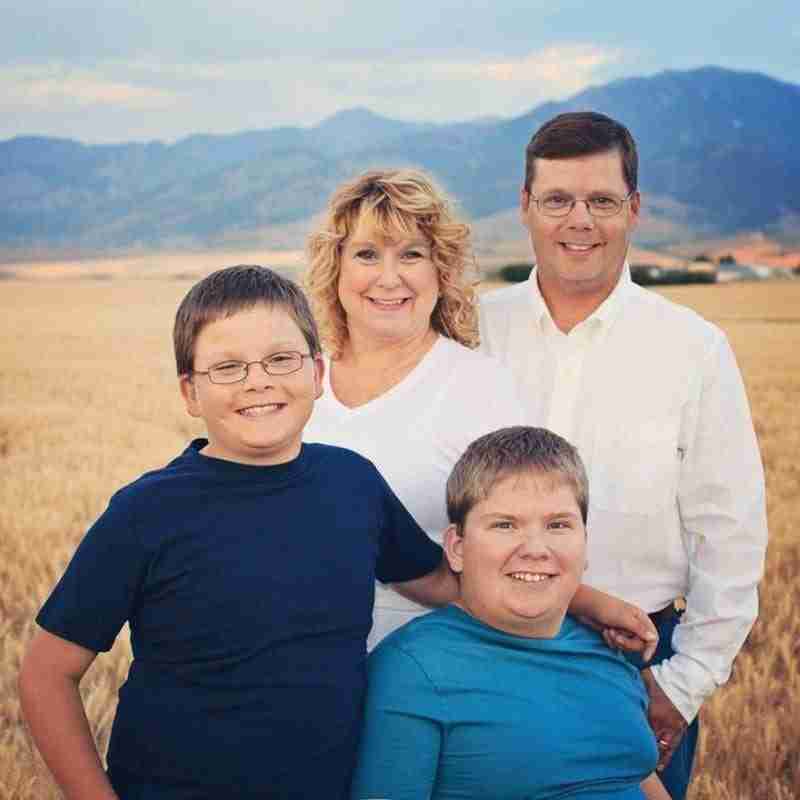
“A lot of it is really simple stuff,” Mitch notes, emphasizing that these changes are not just about compliance but about how we treat people with disabilities.
Mitch highlights the importance of engaging with the disabled community to identify and address barriers.
He suggests that businesses and public spaces conduct regular accessibility audits and actively seek input from disabled patrons. This proactive approach can help ensure that environments are welcoming and accessible to everyone.
Additionally, Mitch advocates for broader systemic changes, such as stricter enforcement of ADA regulations and increased funding for accessibility improvements. He believes that a more inclusive society benefits everyone, not just disabled individuals.
“When we make spaces accessible, we’re not just helping disabled people. We’re creating a more inclusive, compassionate world for all.”
Through his advocacy, Mitch hopes to inspire others to take action and promote social justice for disabled individuals.
His journey underscores the transformative power of empathy, awareness, and collective effort in combating ableism and building a more inclusive society.
Recognizing and Addressing Everyday Ableism
Mitch’s story is a powerful reminder of the resilience and strength of disabled individuals in the face of systemic ableism. His experiences highlight the urgent need for societal changes to create a truly inclusive environment.
Ableism can cause significant emotional and physical harm to disabled individuals.
As Mitch continues to advocate for accessibility and challenge ableist attitudes, his journey inspires others to recognize and address the pervasive discrimination faced by people with disabilities.
During our conversation, I realized that my assumptions about what Mitch might miss the most due to his disability were far off the mark.
While I thought of activities like driving, social outings, and romantic relationships, Mitch highlighted something much more fundamental: getting out of bed.
“Getting out of bed in the morning can be difficult. If my wheelchair is not in the exact same spot or my slide board isn’t in the exact same spot, I have a hard time getting out of bed,” Mitch explained.
Take a Moment to Pause and Reflect on Ableism
This statement was eye-opening and highlighted just how much many of us take for granted in our daily lives.
It underscored the daily challenges faced by disabled individuals and the importance of creating an environment where these challenges are acknowledged and addressed.
Through empathy, awareness, and action, we can move towards a world where everyone, regardless of their abilities, can navigate life with dignity and ease.
Mitch’s advocacy for experiencing life from a disabled person’s perspective, even if just for a day, can foster the necessary empathy and understanding to drive meaningful change.
By actively listening to the needs of the disabled community and making simple yet impactful adjustments, society can become more inclusive and compassionate.
Mitch’s journey is not just a testament to his resilience but also a call to action for all of us. His story encourages us to be more mindful of the barriers a disabled person faces and to take steps toward breaking them down.
Through collective effort and a commitment to inclusivity, we can create a world where everyone can thrive.
Since the original publication date of Mitch’s story, he has started a non-profit called Access Billings. He has also given other interviews, a TEDx Talk, and appeared on the Pay Love Forward Podcast.

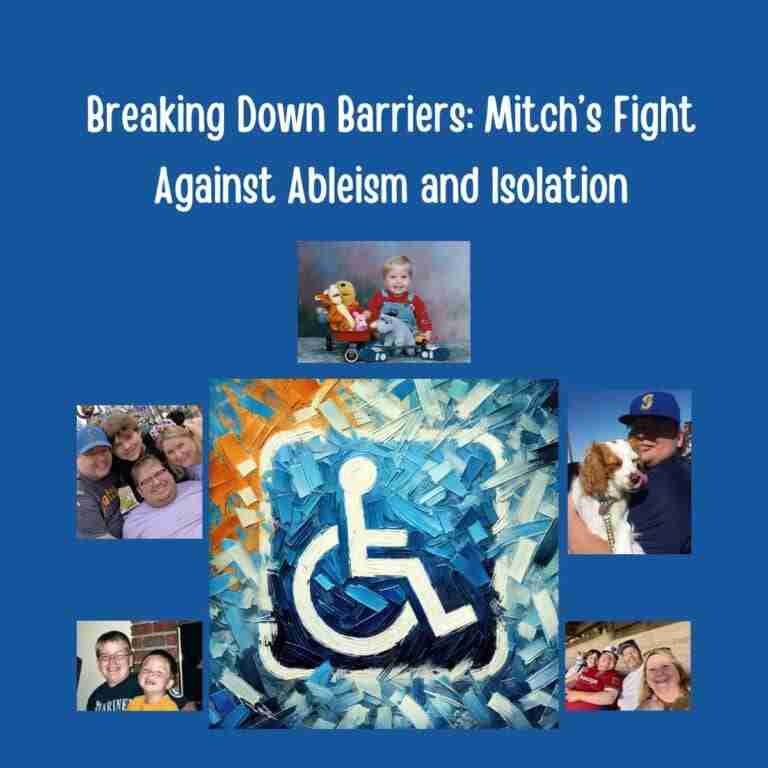

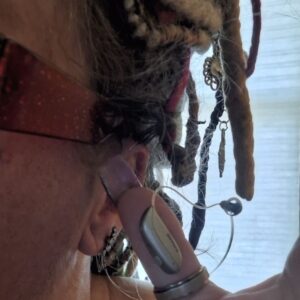
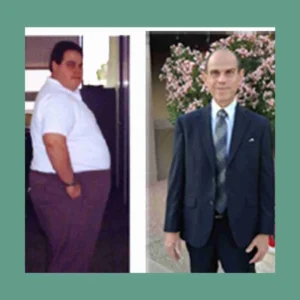








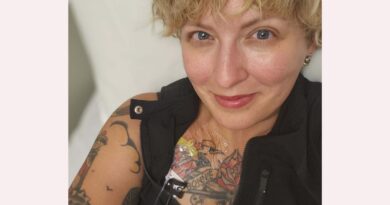



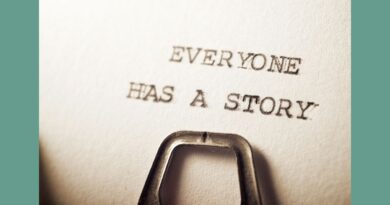










So cool!
Mitch is an amazing young man. He gives me hope in the future generation.
We agree! It was a pleasure to sit and speak with him. We are thankful he chose us to share his story with. Please consider signing up for our newsletter to read more resilient stories each month!
Mitch thank you so much got telling your Story. I can’t wait to meet you at one of the events soon. We are new to Billings and as a disabled person I am finding some challenges but real comforts being in a small town. I find fear setting in that I will need to travel for my surgeries. But the bed side manner here is like no other and has helped help my medical PTSD. Love this page, the people and this city.
I was so happy to meet you the other day! What an informative article. I’m ashamed to say I had never come across the word ableism. Thank you for educating me.
Take care
Barb
Mitch does a lot of educating and we are so thankful he shared his story with us. Thanks for reading it and taking the time to comment! Please consider signing up for our newsletter to get more resilient stories delivered to you each month!
Mitch is one of the most underrated and talented people I’ve ever met. He is the first to jump in to a problem to try to find a solution, and doesn’t give up without a fight. He has great character and integrity and I am very proud to call him my friend.
I was honored to meet with and interview him for this story. He and I will be working together in the future and I am excited to get to know him more. Thanks for taking the time to read and leave a comment! Please consider signing up for our newsletter to get more resilient stories delivered to you each month!
Amazing story!
Mitch is pretty amazing, but you know that already! We are grateful he chose to share his story with us. Thanks for leaving a comment. Please consider signing up for our newsletter to get more resilient stories delivered to you each month!